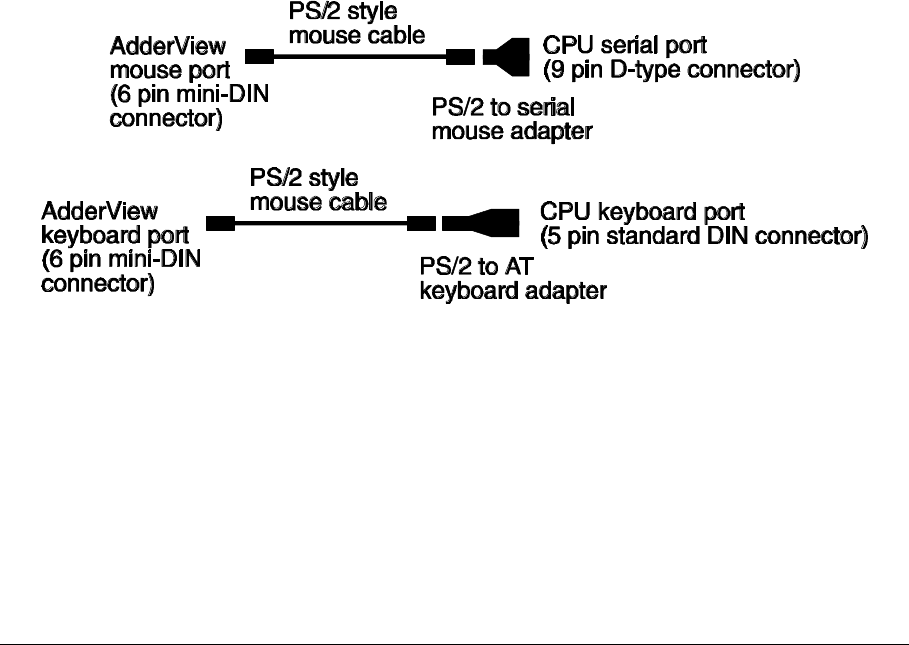
AdderView DVI Installation and Use Page 10
described in Appendix A. The AdderView DVI will operate without a mouse
connected if you do not wish to use one.
2.2 Mounting the AdderView DVI
The AdderView DVI has been designed for use on a desktop or shelf in close
proximity to the user’s monitor and peripherals. The optional remote controller may
be used if you wish to locate the AdderView DVI on a desk or shelf that is some
distance from the monitor and peripherals.
2.3 Connecting your devices
Ensure that the optional power adapter is disconnected from the AdderView DVI and
that all the devices which are to be attached are switched off. Connect the shared
keyboard, PS/2 mouse and monitor to the connectors at the rear of the AdderView
DVI (see figs 1, 2 and 3). Next, connect each computer system unit in turn with the
keyboard cable, mouse cable and video cable. Any unused computer connections
can be left unconnected. To connect computers with serial mouse connections and
AT style keyboard connections use the adapters specified in appendix A. If you have
an existing 6-pin mini-DIN to 9-pin serial adapter that came with a mouse it may not
be suitable for use with the AdderView as there are several different standard wiring
configurations for these adapters.
The AdderView DVI is now ready for use and will start to operate as soon as one of
the attached PCs is powered on. If you are connecting to PCs using cables that are
longer than 5 metres or are cascading the AdderView DVI to another AdderView DVI
you will need to use the optional power adapter. When using the optional power
adapter, ensure that it is connected to the mains and powering the AdderView DVI
before you switch on the connected computers. Failure to switch the AdderView DVI
and computers on in the correct order can lead to the mouse and/or keyboard not
